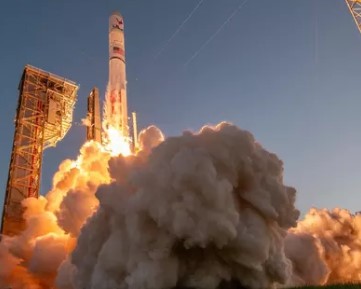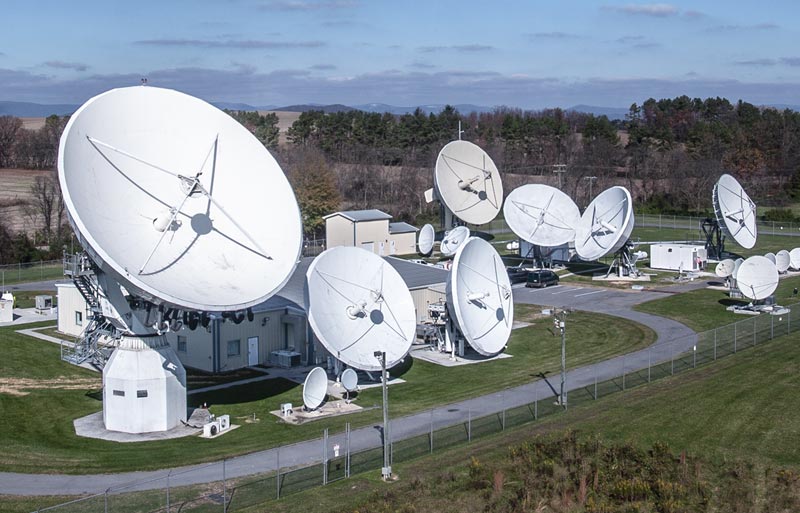Rocket Lab, a growing competitor to SpaceX, has been selected by the U.S. Space Force to compete for high-priority national security satellite launches.
Rocket Lab Joins The Race For National Security Launches
The company was chosen as part of the National Security Space Launch (NSSL) Phase 3 Lane 1 program, which is a crucial effort to send military and intelligence satellites into orbit. This contract has a total value of up to $5.6 billion and will run through June 2029.
It is one of five companies selected for this contract. The other companies include SpaceX, Blue Origin, United Launch Alliance (ULA), and Stoke Space. Rocket Lab and Stoke Space were the latest additions, joining the program alongside the other three firms that were selected last year. This selection means Rocket Lab will be competing with some of the biggest names in the space industry for military satellite launch contracts.
The NSSL Phase 3 program is designed to strengthen national security by ensuring that vital government payloads, such as surveillance satellites, communication equipment, and defense-related space assets, reach their designated orbits safely and efficiently. Under this program, a minimum of 30 missions will be awarded to selected companies over the next five years.
US Senator Warns: SpaceX Deal Could Jeopardize US Air Force’s Satellite Program
To move forward in this competition, Rocket Lab and Stoke Space have each been awarded an initial $5 million task order. This funding will be used to demonstrate their launch capabilities, a crucial step before they can secure larger contracts. If Rocket Lab successfully completes this demonstration, it will have the opportunity to compete for more missions under the program.
Rocket Lab’s Neutron Rocket Takes The Spotlight
To compete with major space companies, Rocket Lab will rely on its Neutron rocket, a new-generation reusable launch vehicle designed for high-performance space missions. The Neutron rocket is built to carry payloads of up to 13,000 kilograms (13 tons), making it one of the most powerful rockets developed by the company.
The Neutron is a fully reusable rocket, meaning it is designed to be launched multiple times, reducing the overall cost of space missions. This feature is similar to SpaceX’s Falcon 9 and Starship rockets, which have revolutionized space travel by cutting down expenses through rocket reusability.
Rocket Lab has scheduled the Neutron rocket’s first launch for the second half of this year. This launch will serve as a key demonstration of the rocket’s capabilities. If it is successful, Rocket Lab will be officially eligible to receive further task orders under the NSSL Phase 3 program.
Mechazilla: SpaceX’s Innovative Rocket Recovery System
Rocket Lab is known for its Electron rocket, a smaller launch vehicle that has been used for several successful missions. However, the Neutron rocket is a much larger and more advanced system, aimed at competing with the likes of SpaceX’s Falcon 9. With this new rocket, Rocket Lab is positioning itself as a serious competitor in the military and commercial space industry.
By securing a place in the NSSL Phase 3 program, Rocket Lab is taking a significant step toward expanding its role in government and defense-related space missions. The company will now have the opportunity to prove its reliability and compete for a share of the $5.6 billion contract.
RKLB Stock Reacts To The Announcement
Following the announcement, RKLB saw a 1% gain on Friday. Before the market opened, the stock had already surged 8% in premarket trading, reflecting strong investor confidence in the company’s selection for the program.
Critical Return Mission for Sunita Williams and Butch Wilmore Begins as SpaceX Launches Crew
Despite this positive reaction, Rocket Lab’s stock performance has been struggling throughout 2024. The company’s shares have dropped by nearly 27% this year, significantly falling from its record high of $33.34 on January 24. Investors have been closely watching Rocket Lab’s progress as it works to expand its presence in the commercial and military space sectors.
The competition for national security space missions is intense, with established players like SpaceX, ULA, and Blue Origin already dominating the industry. However, Rocket Lab’s inclusion in this program highlights its growing reputation as a serious contender in the space race.
With billions of dollars in contracts up for grabs, Rocket Lab faces an uphill battle against industry giants. The company must demonstrate the capabilities of its Neutron rocket and prove that it can handle the demands of military space missions. While its stock has shown signs of recovery, investors remain cautious as they wait to see whether Rocket Lab can successfully establish itself as a leading player in national security launches.




